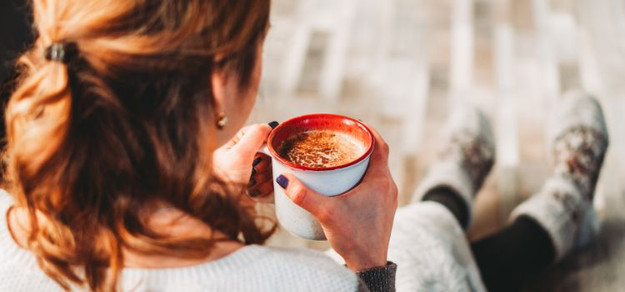Does Caffeine Cause Bruxism?
4th Jul 2025

Does caffeine cause bruxism? Many of us rely on caffeine to kick start our mornings or push through the afternoon slump. Whether it's coffee, tea, or energy drinks, caffeine is a go-to for boosting alertness and focus. But if you struggle with teeth grinding (bruxism), you might wonder—does caffeine make it worse?
This article explores the link between caffeine and bruxism, its effects on sleep-related grinding, and how to manage symptoms without giving up coffee.
The Science Behind Caffeine & Bruxism

Caffeine is a stimulant that affects the central nervous system, increasing alertness and reducing fatigue. It works by blocking adenosine, a neurotransmitter that promotes relaxation and sleep. As a result, caffeine can lead to increased muscle activity, including in the jaw.
For people with bruxism, this may be a concern. Higher muscle tension can contribute to jaw clenching and teeth grinding, especially in those prone to stress-related bruxism.
Caffeine also triggers the release of adrenaline and cortisol, stress hormones that can heighten muscle activity and tension.
Note: While caffeine's effects vary from person to person, those sensitive to stimulants may experience more jaw clenching or grinding after consuming coffee, tea, or energy drinks. But does this mean caffeine directly causes bruxism? The answer isn’t so simple.
Related Articles:
- The Relationship Between Bruxism and Stress
- Best and Worst Drinks Before Bedtime
- Worst-Case Scenarios for Bruxism
What Research Says About Caffeine and Bruxism
The link between caffeine and bruxism isn’t clear. Some studies suggest caffeine can increase muscle tension, but no research proves it directly causes teeth grinding.
A study found that habitual consumption of coffee increases the likelihood of sleep bruxism. Therefore, coffee consumption should be cautionary for those who suffer from sleep bruxism.
Research suggests that individuals who consume more than 8 cups of coffee daily have nearly twice the likelihood of developing sleep bruxism.
Caffeine can also affect sleep. Since poor sleep is a known trigger for bruxism, drinking caffeine too late in the day might make nighttime grinding worse. However, not everyone with bruxism is affected the same way.
Tip: If you notice more jaw clenching or grinding after consuming caffeine, try cutting back and see if it helps.
How Much Caffeine is Too Much?
There’s no set amount of caffeine that causes bruxism, as everyone reacts differently. However, high caffeine intake can increase muscle tension and disrupt sleep, both of which may contribute to teeth grinding.
According to the U.S. Food and Drug Administration (FDA), consuming up to 400 mg of caffeine per day (roughly four 8-ounce cups of coffee) is generally safe for most adults. However, if you experience increased jaw clenching, headaches, or disrupted sleep, even smaller amounts may be excessive.
Tip: To see if caffeine is affecting your bruxism, try reducing your intake gradually and track any changes in your symptoms.
Managing Bruxism Without Quitting Caffeine

Love your coffee but worried about teeth grinding? You don’t have to give it up completely. Here are simple ways to manage bruxism while still enjoying caffeine:
Wear a Custom Night Guard
A Custom-fit night guard made just for you can protect your teeth—even if you still enjoy caffeine.
Avoid Caffeine Late in the Day
Stop drinking caffeine at least 6 hours before bedtime to protect your sleep.
Cut Back Slowly
If caffeine makes your grinding worse, reduce your intake gradually instead of quitting all at once.
Try Lower-Caffeine Alternatives
Switch to green tea, decaf coffee, or herbal teas for a gentler energy boost.
Stay Hydrated
Caffeine can dehydrate you, which may increase muscle tension. Drink plenty of water throughout the day.
Manage Stress
Since stress can trigger bruxism, try deep breathing, meditation, or gentle jaw stretches to relax.
Related Articles:
- Guide to Choosing the Right Night Guard
- Wearing a Night Guard: Pros and Cons
- How to Get Used to Wearing a Night Guard

- Most Popular
- Hard Outside, Soft Inside
- 2MM Thick
- Moderate / Heavy

- Most Durable
- Hard Materials
- 1.5MM Thick
- Heavy / Severe

- For Day Time Use
- Thin, Barely Visible
- 1MM Thick
- Light / Moderate

- For Clenching
- Flexible & Soft
- 1.5MM Thick
- Light / Moderate
What Are the Best Alternatives to Caffeine for Energy?
If you want to cut back on caffeine but still need an energy boost, here are some healthier alternatives:
Stay Hydrated
Dehydration can cause fatigue. Drinking enough water throughout the day helps keep your energy levels stable.
Eat Energy-Boosting Foods
Snacks rich in protein, healthy fats, and complex carbs (like nuts, yogurt, and whole grains) provide steady energy without crashes.
Get Moving
A quick walk, some light stretching, or deep breathing exercises can improve circulation and boost alertness.
Prioritize Sleep
Poor sleep leads to fatigue, which makes you rely more on caffeine. Aim for 7–9 hours of quality sleep each night.
Try Herbal Teas
Teas like peppermint, ginger, and ginseng can provide a natural energy lift without caffeine.
Use Natural Supplements
B vitamins, magnesium, and iron support energy production and may help reduce fatigue.
Take Short Breaks
Stepping away from your screen, getting fresh air, or doing a quick mindfulness exercise can refresh your focus.
FAQs: Caffeine and Bruxism
1. Should I stop drinking caffeine if I have bruxism?
Not necessarily. If you suspect caffeine worsens your symptoms, try reducing your intake gradually and monitor any changes.
2. Does decaf coffee still affect bruxism?
Decaf coffee contains less caffeine but isn’t completely caffeine-free. If you’re highly sensitive to caffeine, even decaf may have a mild effect on muscle tension and sleep.
3. What drinks should I avoid if I grind my teeth?
Highly caffeinated drinks like coffee, energy drinks, and some sodas may increase muscle tension. Alcohol can also contribute to bruxism by disrupting sleep.
4. How long does caffeine stay in your system?
Caffeine has a half-life of about 1.5 and 9.5 hours, meaning it can stay in your system for several hours and potentially affect sleep and bruxism symptoms.
5. Will quitting caffeine completely stop bruxism?
Not necessarily. Bruxism has multiple causes, including stress, anxiety, and sleep disorders. Reducing caffeine may help, but other lifestyle changes and a night guard may be needed for full relief.
6. Can caffeine withdrawal cause jaw clenching or bruxism?
Yes, caffeine withdrawal can cause temporary muscle tension, headaches, and irritability, which might lead to jaw clenching in some people. Reducing caffeine gradually can help minimize symptoms.
Final Thoughts
Caffeine may not directly cause bruxism, but it can increase muscle tension and affect sleep, which might make teeth grinding worse for some people. Since everyone reacts differently, the best approach is to pay attention to your symptoms and adjust your caffeine intake if needed.
If you notice more jaw clenching or grinding after drinking coffee, try reducing caffeine, especially in the afternoon and evening. Managing stress, staying hydrated, and using a custom night guard can also help protect your teeth from damage.
References:
- Evans, J., Richards, J. R., & Battisti, A. S. (2024, May 29). Caffeine. In StatPearls. StatPearls Publishing. https://www.ncbi.nlm.nih.gov/books/NBK519490/
- Ferreira, L. H. B., Forbes, S. C., Barros, M. P., Smolarek, A. C., Enes, A., Lancha-Junior, A. H., Martins, G. L., & Souza-Junior, T. P. (2022). High doses of caffeine increase muscle strength and calcium release in the plasma of recreationally trained men. Nutrients, 14(22), 4921. https://doi.org/10.3390/nu14224921
- Frosztega, W., Wieckiewicz, M., Nowacki, D., Poreba, R., Lachowicz, G., Mazur, G., & Martynowicz, H. (2023). The effect of coffee and black tea consumption on sleep bruxism intensity based on polysomnographic examination. Heliyon, 9(5), e16212. https://doi.org/10.1016/j.heliyon.2023.e16212
- Bertazzo-Silveira, E., Kruger, C. M., Porto De Toledo, I., Porporatti, A. L., Dick, B., Flores-Mir, C., & De Luca Canto, G. (2016). Association between sleep bruxism and alcohol, caffeine, tobacco, and drug abuse: A systematic review. Journal of the American Dental Association, 147(11), 859–866.e4. https://doi.org/10.1016/j.adaj.2016.06.014
- U.S. Food and Drug Administration. (2024, August 28). Spilling the beans: How much caffeine is too much? https://www.fda.gov/consumers/consumer-updates/spilling-beans-how-much-caffeine-too-much
- Institute of Medicine (US) Committee on Military Nutrition Research. (2001). Pharmacology of caffeine. In Caffeine for the sustainment of mental task performance: Formulations for military operations (Chapter 2). National Academies Press (US). https://www.ncbi.nlm.nih.gov/books/NBK223808/

- Most Popular
- Hard Outside, Soft Inside
- 2MM Thick
- Moderate / Heavy

- Most Durable
- Hard Materials
- 1.5MM Thick
- Heavy / Severe

- For Day Time Use
- Thin, Barely Visible
- 1MM Thick
- Light / Moderate

- For Clenching
- Flexible & Soft
- 1.5MM Thick
- Light / Moderate
